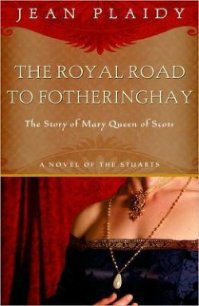The Lion of Justice - Plaidy Jean (книги без регистрации полные версии .txt) 📗
‘Oh, my father.’ said Henry, ‘I should never be guilty of such folly. This young man who comes against me is my nephew, your grandson, but by God and all the saints, if I come face to face with him in combat I shall slay him, nor should I admire him if he having the advantage did not slay me. You prophesied that I should have more than either of my brothers and by this you meant both your dukedom of Normandy and the England you conquered. I know it was your dream to make one country of these two and that is what I shall do. Let your spirit ride beside me and I shall be sure of victory.’
So he prayed not to God but to the spirit of his great all-conquering father.
It was inevitable that he should rout the enemy. He had the superior forces; he was a greater general than the King of France ever could be and poor Clito was too inexperienced as yet.
During the battle Clito was unhorsed; he managed to escape but the horse was captured—a magnificent creature caparisoned in the most elaborate fashion. None could doubt that such a horse had belonged to the son of Robert of Normandy for so magnificent was it that it must have cost a fortune to make it so.
Henry laughed aloud when the horse was brought to him.
‘The Clito’s horse, sire. He was unseated.’
‘And escaped?’ asked Henry.
‘Alas, sire. As soon as he fell he was surrounded by a strong force who held off his attacker who was slain. Before more of our men should take him he was hustled away.’
‘I would rather have him than his horse.’ said Henry, ‘for while he lives he will find men to rally to his banner.’
But the battle was won; the Clito had been unhorsed, the King of France was in retreat. It was a victory.
‘William.’ said Henry, ‘see what a fine horse your cousin rides?’
‘I never saw a horse so richly caparisoned, sir.’
‘These riches should have gone into equipping his men. One does not win battles with gold and bejewelled saddles, my son.’
‘Nay, father.’
‘Never make the mistake of extravagance. Your grandfather never did that.’
William nodded. He had been lectured many times on the need never to waste money. Henry knew to a penny what was spent on his campaigns and on his household. He had not been nicknamed Beauclerc for nothing. He could wield a pen as readily as any scribe and he enjoyed working with figures which must always balance.
‘Learn all you can of your grandfather’s campaigns. He was the greatest ruler ever known. Listen to my advice, for I follow him. One day, William, you will step into my shoes. The death of your mother who was more than ten years younger than I brings home this truth. I cannot live forever. Then you will be King in my place. You must be ready, for as your mother was taken when we least expected it, so could I be.’
‘Father, I beg of you...stop. The subject is so distasteful to me.’
Henry laughed. ‘There, my son. We kings must face facts. There is little time in our lives for family feelings. You must be ready when the time comes. But a king cannot afford to make mistakes. Learn from the folly of your uncle Robert and the Clito who a wanderer, one might say in search of his inheritance, yet spends a fortune on a horse which he could— and has—lost in battle. Your grandfather was a richer man than Clito could ever be. He was the richest man in England and Normandy, yet he would never have wasted a penny as I do not. Nor must you. Take this horse then. I give it to you. Make what use of it you wish.’
William took the horse and left his father.
* * * * *
In his tent, he thought of the horse—a noble creature. He fancied it had a sad lost look in its eyes; and he thought of his own horse bereft of its master. The finer the horse the deeper its feelings. This was Clito’s horse and he loved his master.
He went out to the stable and looked at the horse again. He patted its neck and he felt the aloofness of the creature who managed to show him a disdain he understood, as though it were saying: Do you think I am yours because you won me in battle?
Clito had loved this horse. He had decked it out in this fashion because he wished to give it accoutrements worthy of it. William understood that though his father did not.
How could he take his cousin’s horse when it belonged to him? It was not like a town or a jewel. It was a living thing. Nothing on earth could make this horse his. It would fret for its master.
William knew then that he could never be a king as his grandfather had been or his father was. He could not count his possessions and revel because they were so large and plan how to enhance them. William wanted to live. He wanted to be a king, yes; and he knew that a king had to go into battle. It would always be necessary for a king to fight to hold what he had, to gain more than he had. It was part of kingship.
He was joined by his cousin Stephen who had come to look at the horse.
‘What a beauty P cried Stephen. ‘Look at this cloth I These jewels are worth a fortune.’
‘So my father says. The Clito is a fool to have wasted money which could have gone into more useful things.’
‘But what a sight! And it is yours.’
‘I feel I have no right to it.’
Stephen surveyed William intently. William was too gentle, too honest for kingship^ he decided. He wondered what would happen to the kingdom under him. He would be his close friend and cousin and William would honour him. Their lives would be bound together. How often had he wished that he had been Henry’s son instead of his nephew; being older than William he would have been the heir. Sometimes he thought that Henry wished that too.
‘You have a right to what has been honourably won in battle.’ said Stephen.
‘This horse pines for its master.’
‘It would soon forget.’
‘I think not.’
William continued to stroke the horse. ‘You see, he does not respond to me. He resents me. There is only one thing he wants from me and that is that I should send him back to the master he loves.’
Stephen laughed aloud at the thought; but William turned on him almost angrily. ‘That is what I am going to do.’ he said.
Stephen stared in dismay. ‘Your father...’
‘I shall do it first and he will hear of it when it is done.’
He called a groom and said, ‘I want this horse taken into the enemy’s camp. It is to be delivered to William the Clito with my compliments.’
The groom thought the Prince had gone mad, but one did not question one’s master’s orders; one obeyed them.
* * * * *
The King said: ‘So you sent the horse back?’
‘Yes, sir.’
‘With a fortune on its back!’
‘I am not a thief, my lord.’
‘You are a fool,’ said Henry. ‘A man is not a thief for enjoying the spoils of war.’
‘I could not in good conscience take it.’
‘William, you are a fool.’
‘Yes, sir.’
‘And fools do not rule kingdoms.’
‘But a man must be at peace with himself, sir, and if he is not how can he hope to be at peace with others? Peace is necessary to the prosperity of any land and to have kept my cousin’s horse would have seemed to me a violation of the rules of chivalry.’
Henry said: ‘Go, my son, I will think of what you say.’
Surprised, William left him. His father’s reception of the news had been much milder than he had believed possible.
Was he perhaps in a subdued mood because of the Queen’s death, or did he in fact understand?
Later Henry spoke to him of the matter. ‘I believe you were right to send back the horse.’ he said.
The expression of affection on his son’s face was rewarding.
‘I am not sure about the rich caparisons.’
‘Nay, father, to have returned the horse without them would have seemed to me churlish.’
Henry nodded. Then he laughed aloud. ‘My son,’ he said, ‘you have noble thoughts. You and I will spend more time together. You will have to learn when to be generous as you have been this day and when it is necessary to be harsh. This gesture was not without merit although it has lost us the cost of those jewels. But our enemies will see with what men they have to deal and that is not a bad thing. They will know us to be just and virtuous in our thoughts. It may be that your actions will bring those who are wavering to our side. Then it would be worthwhile, as you see.’




